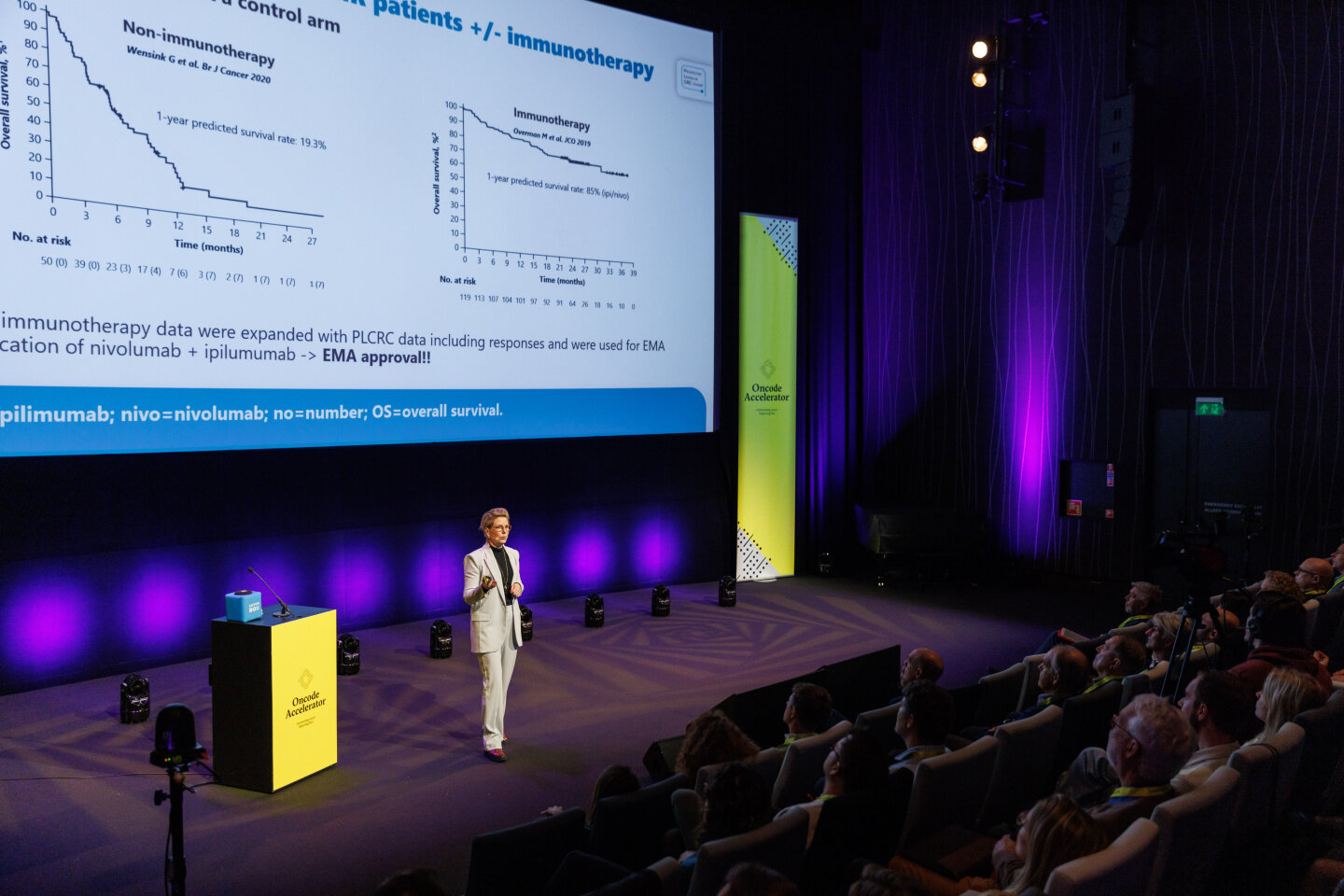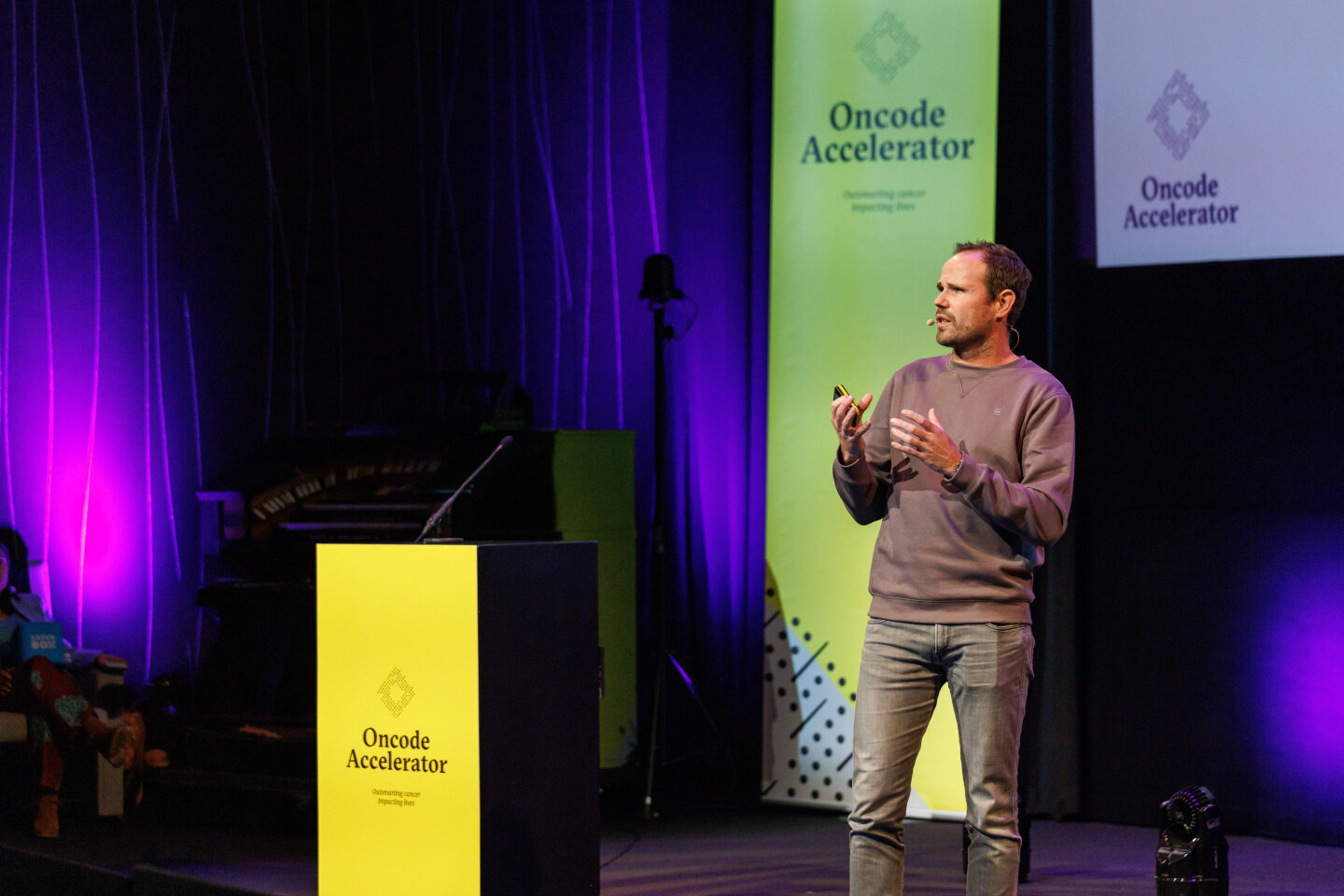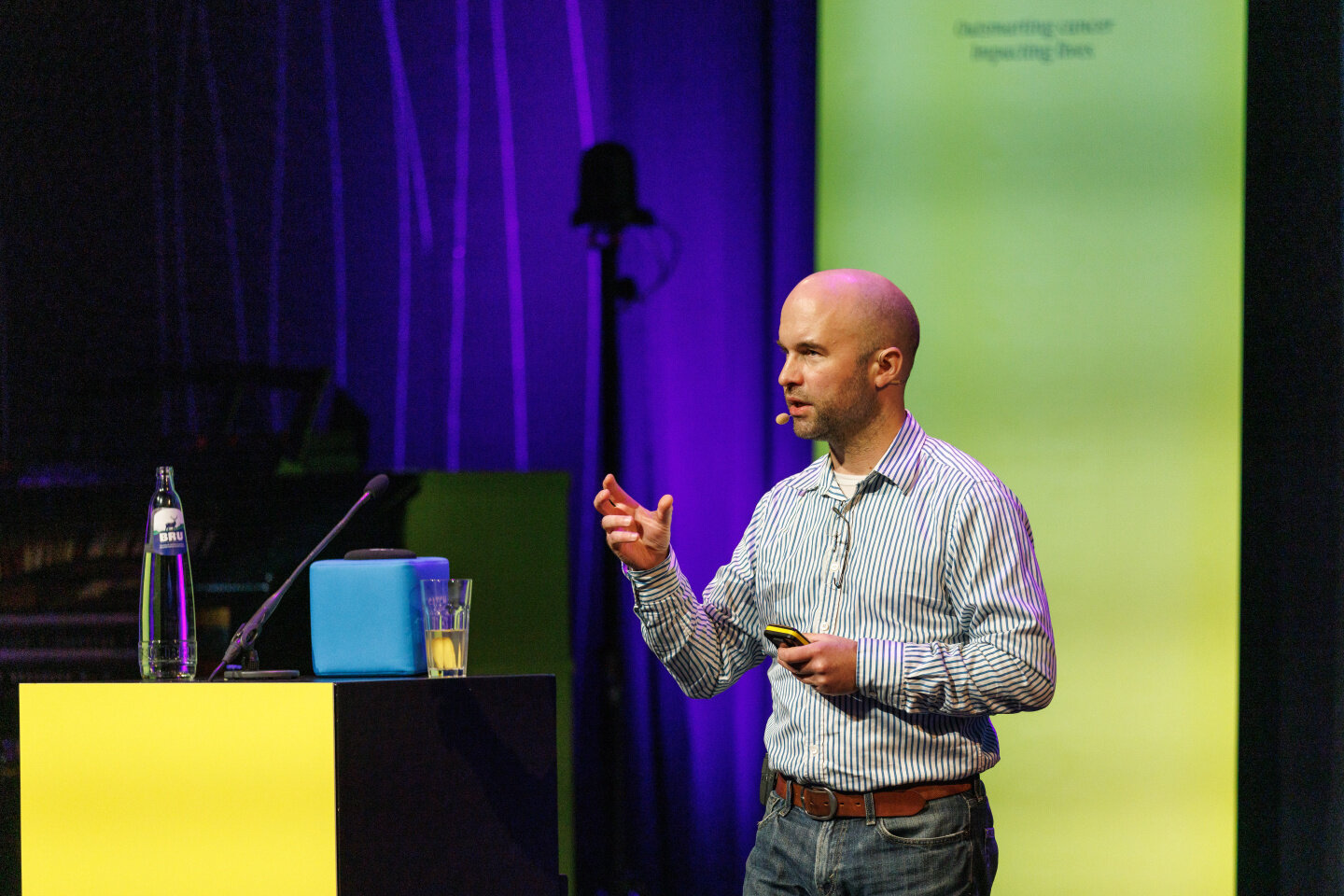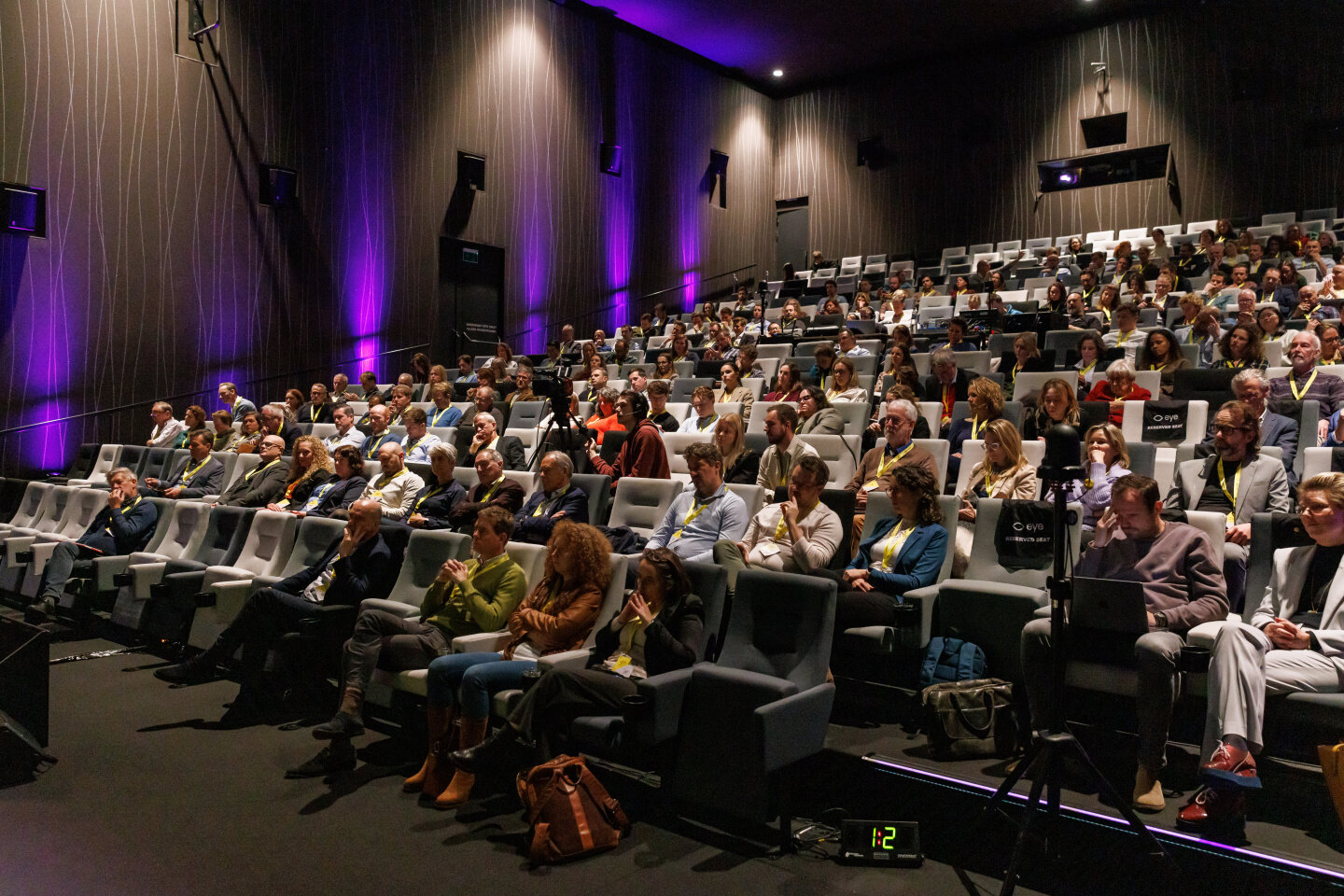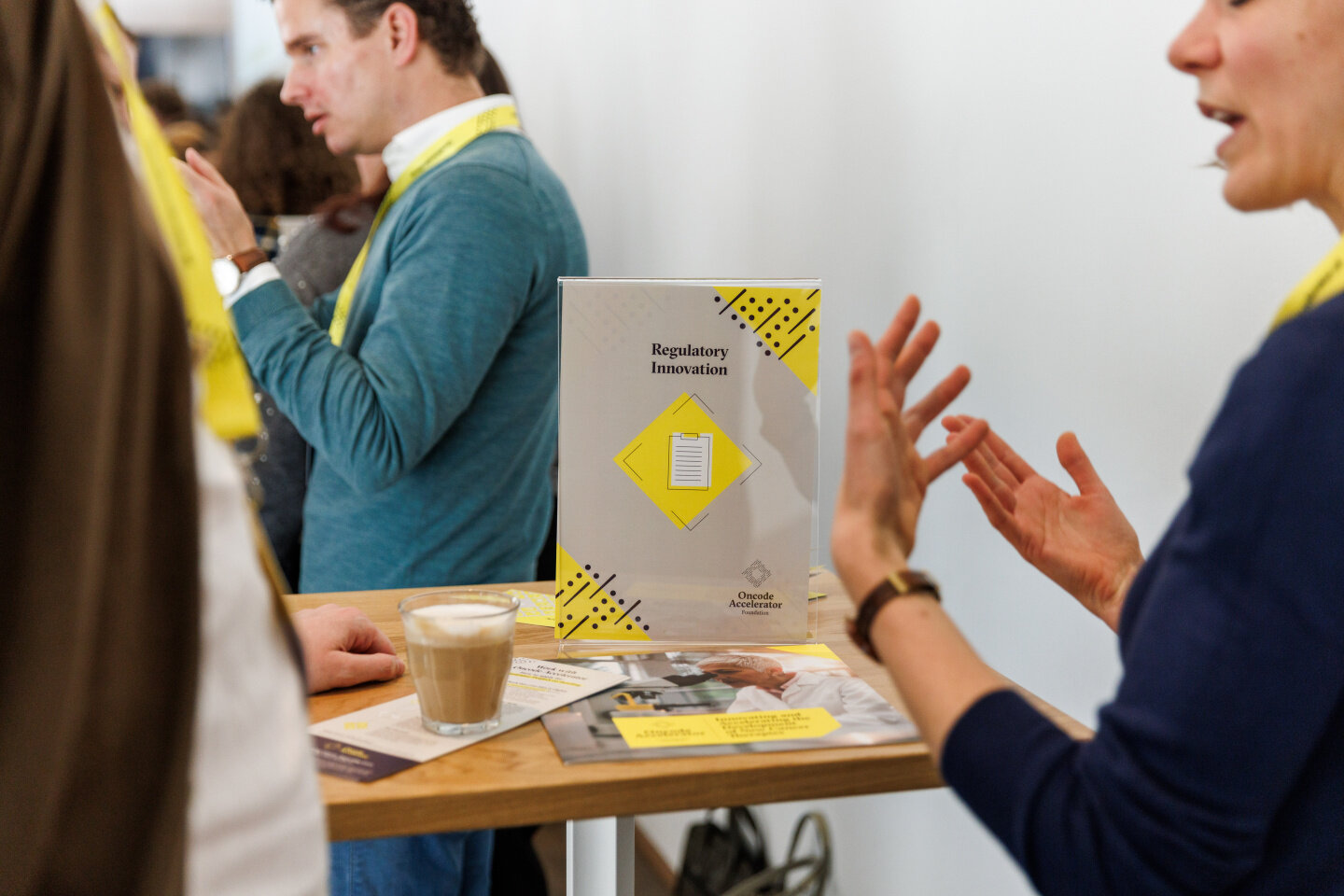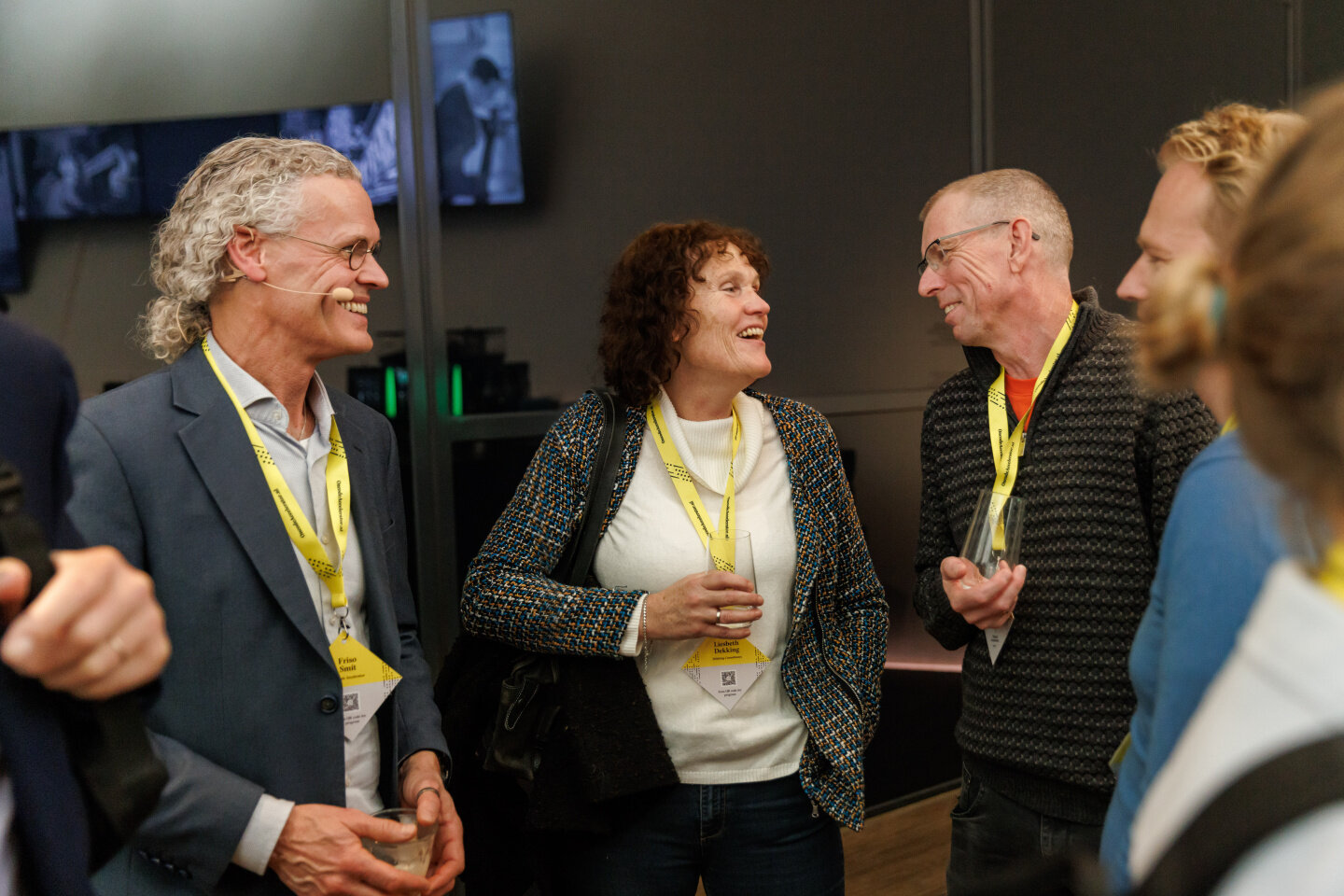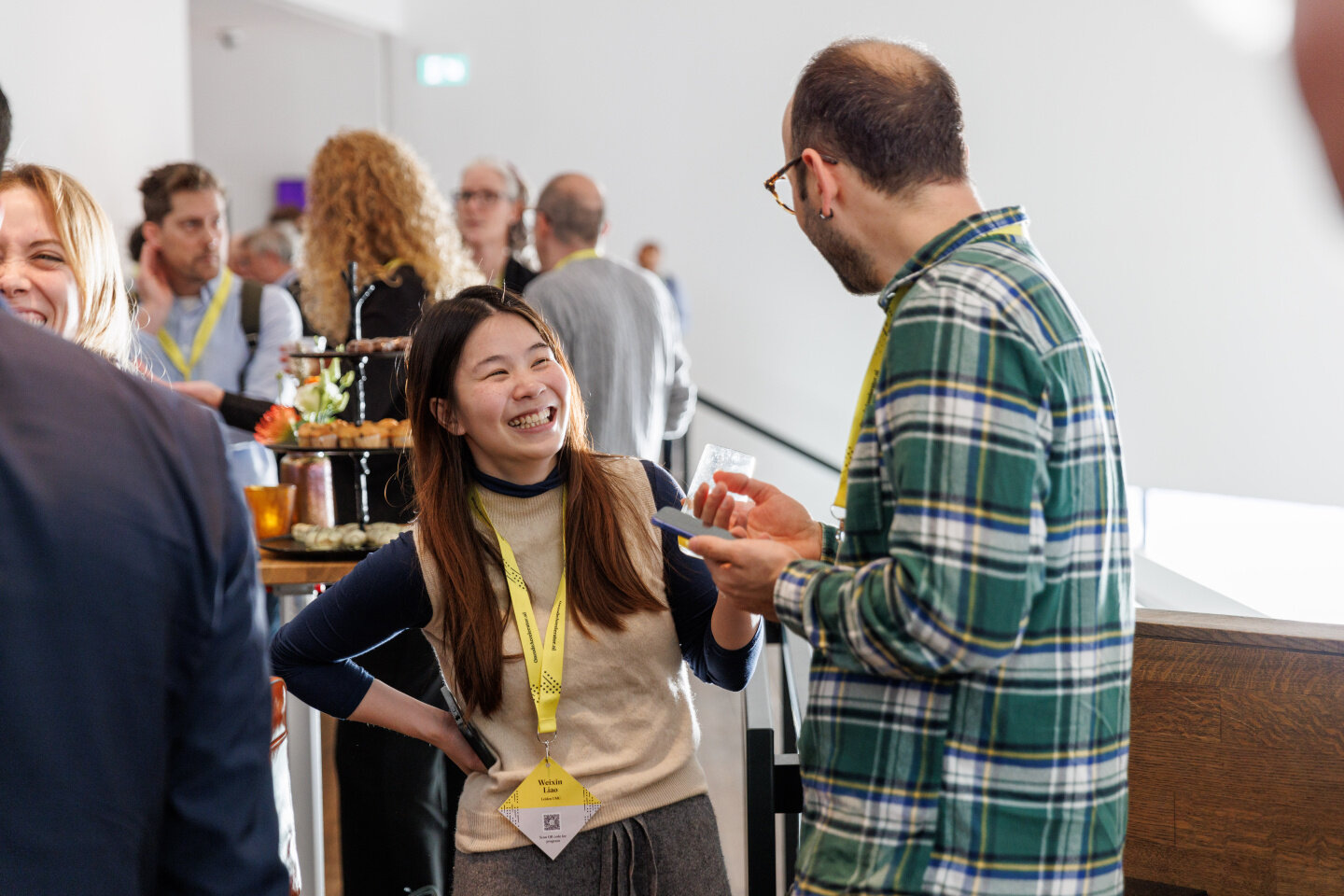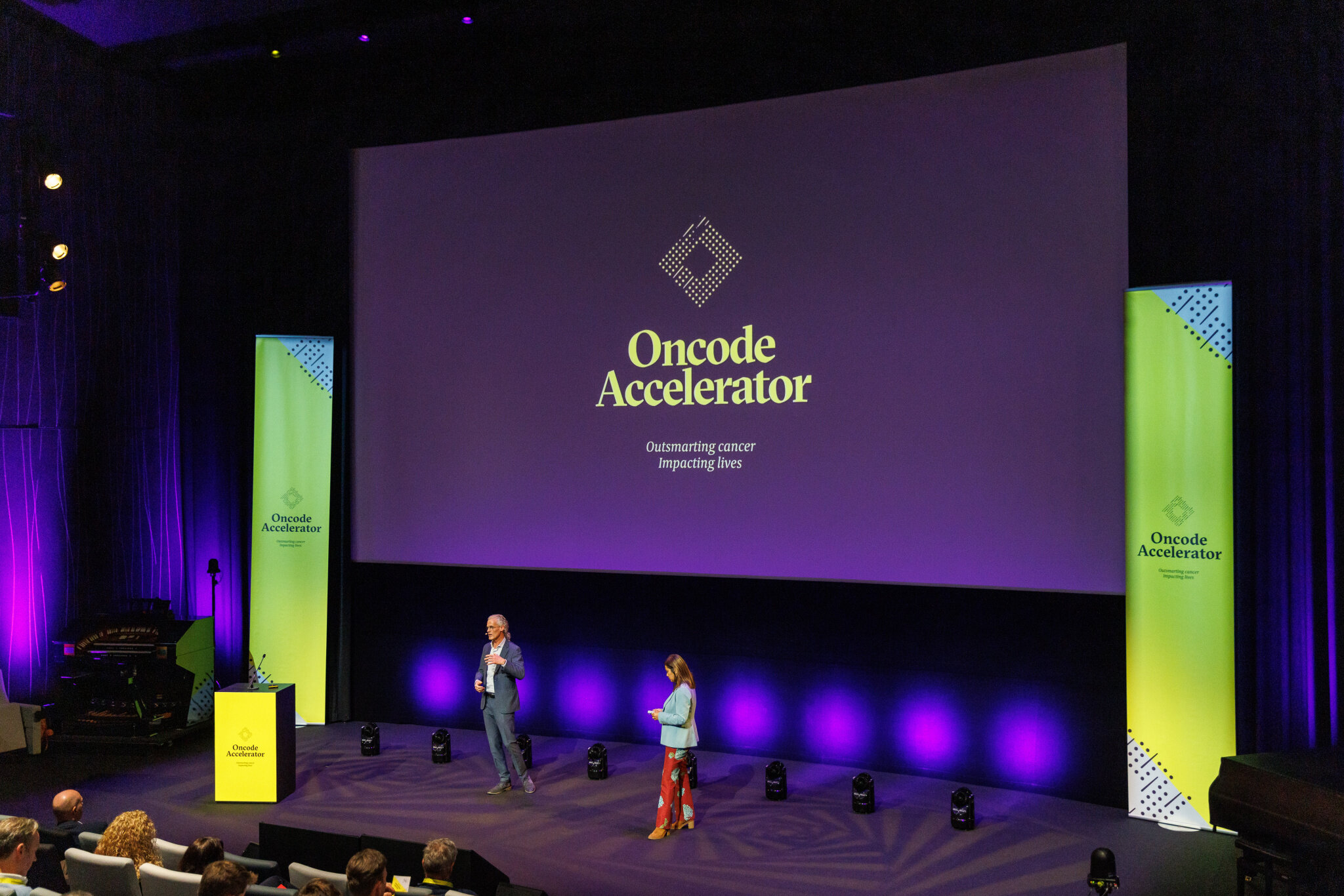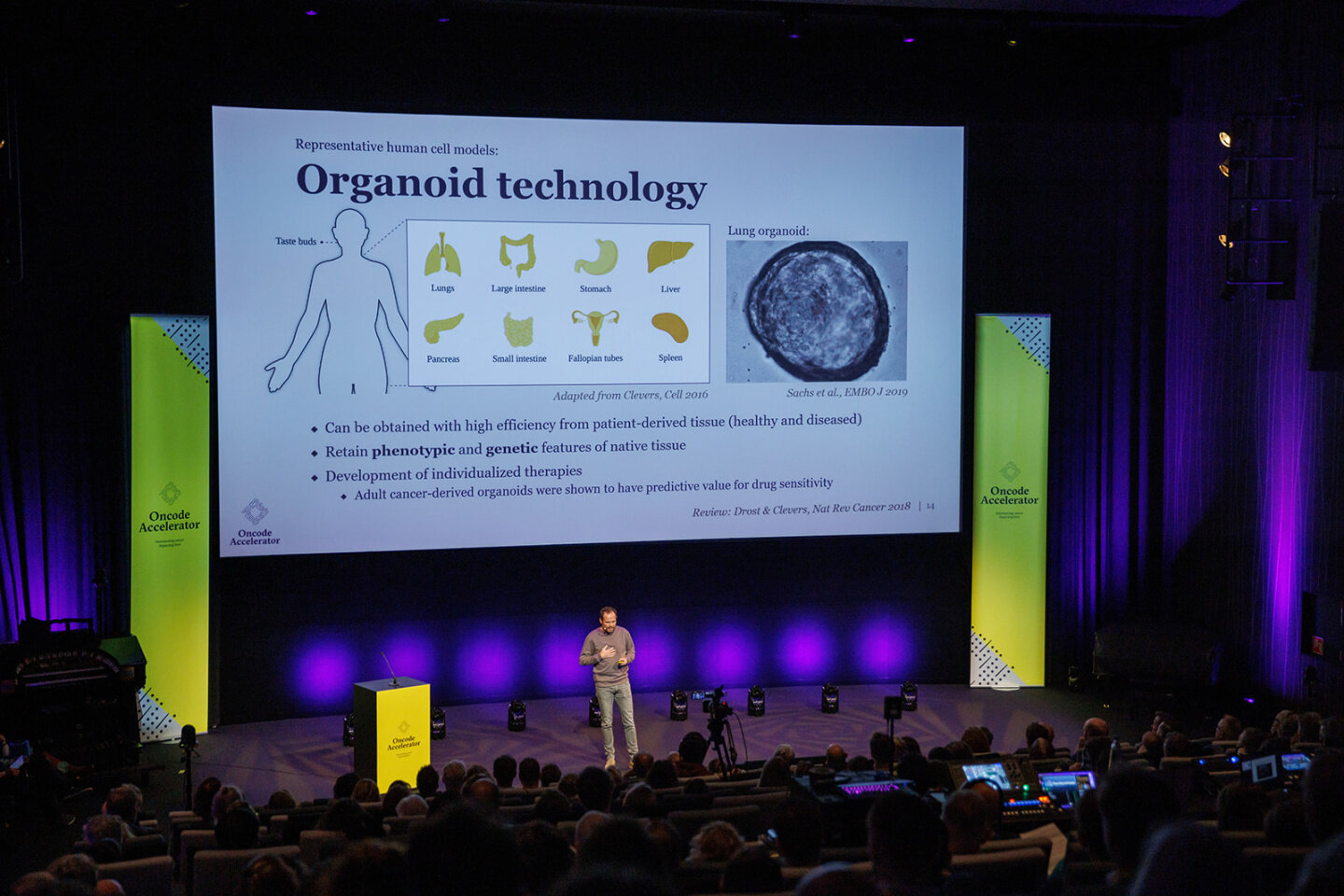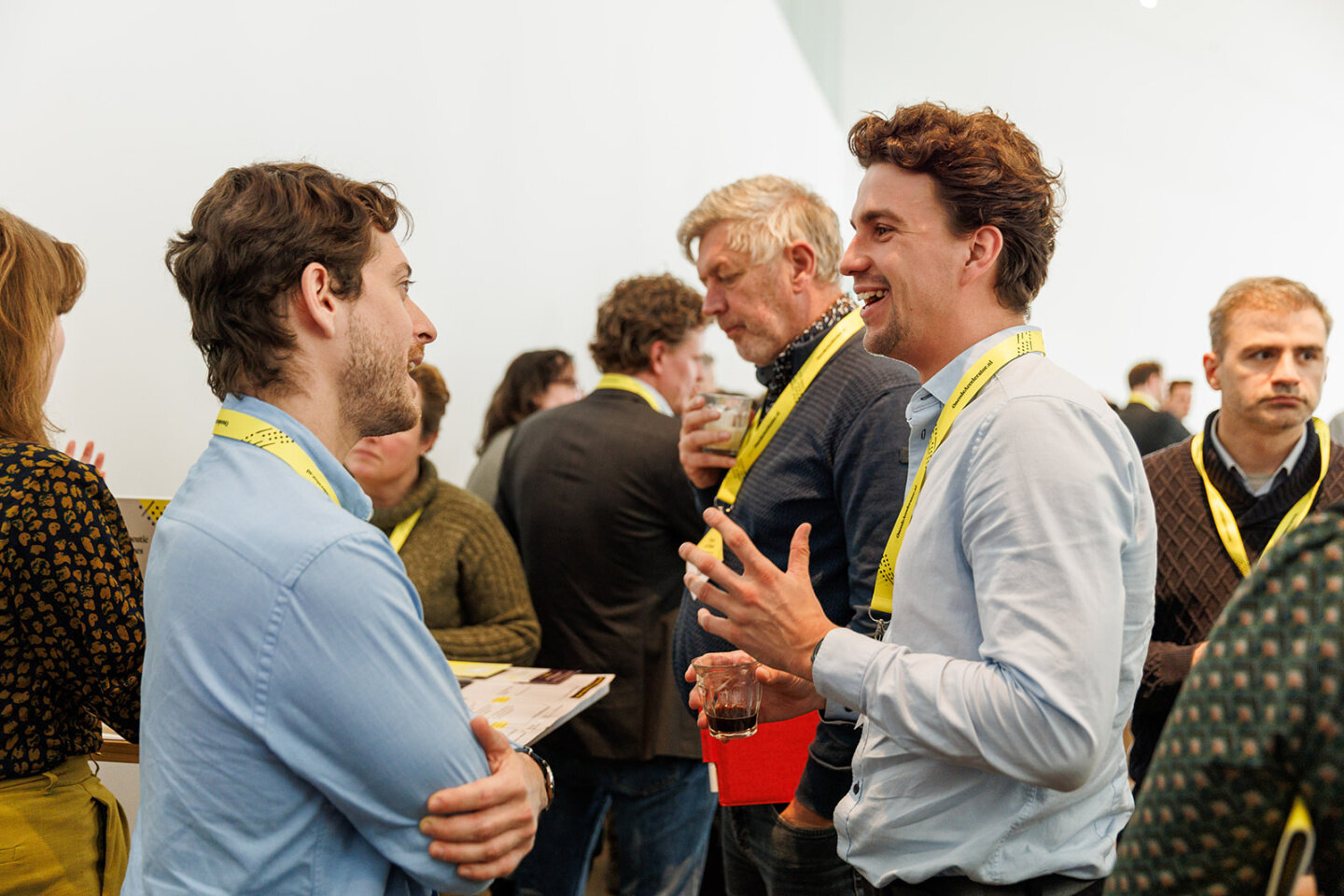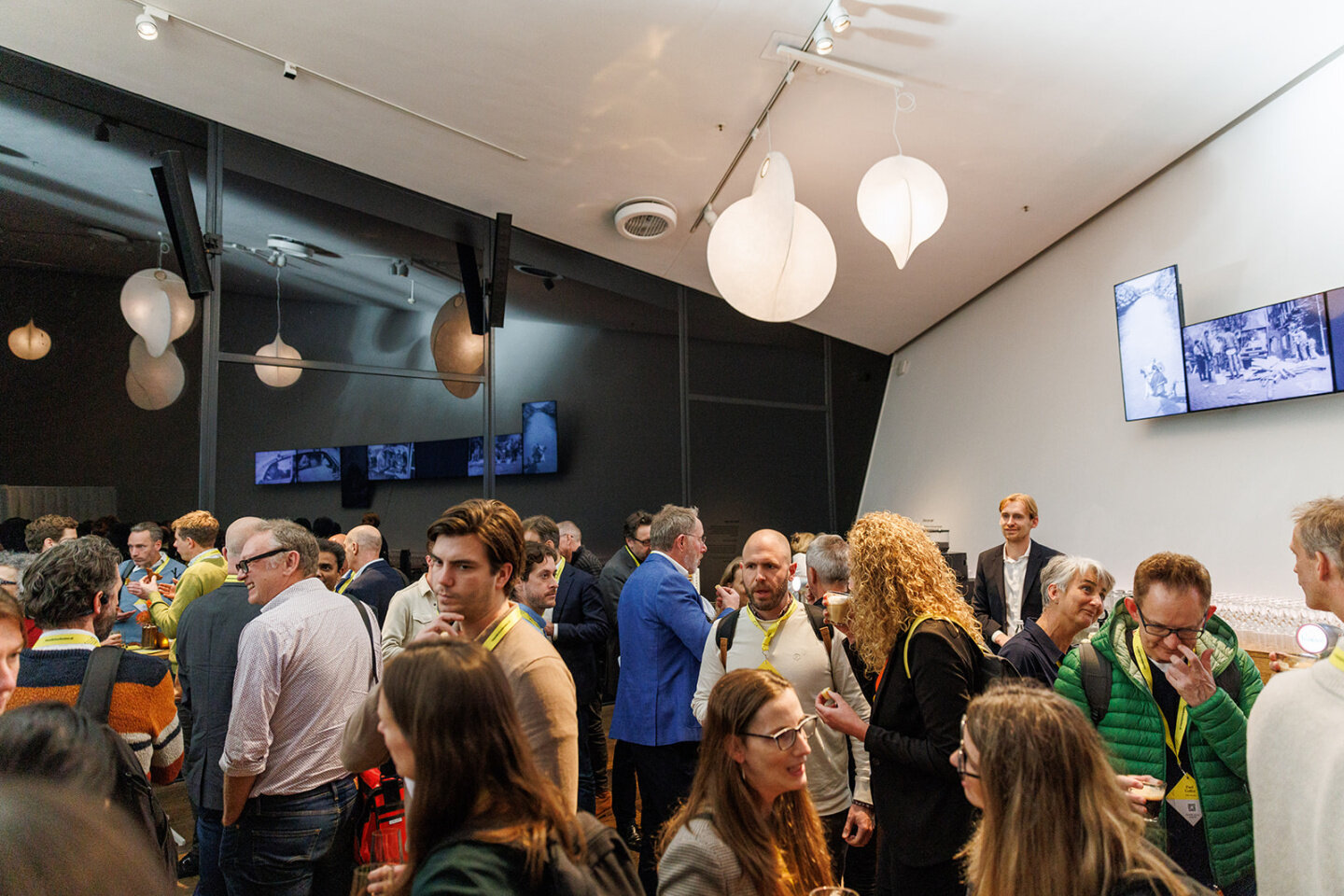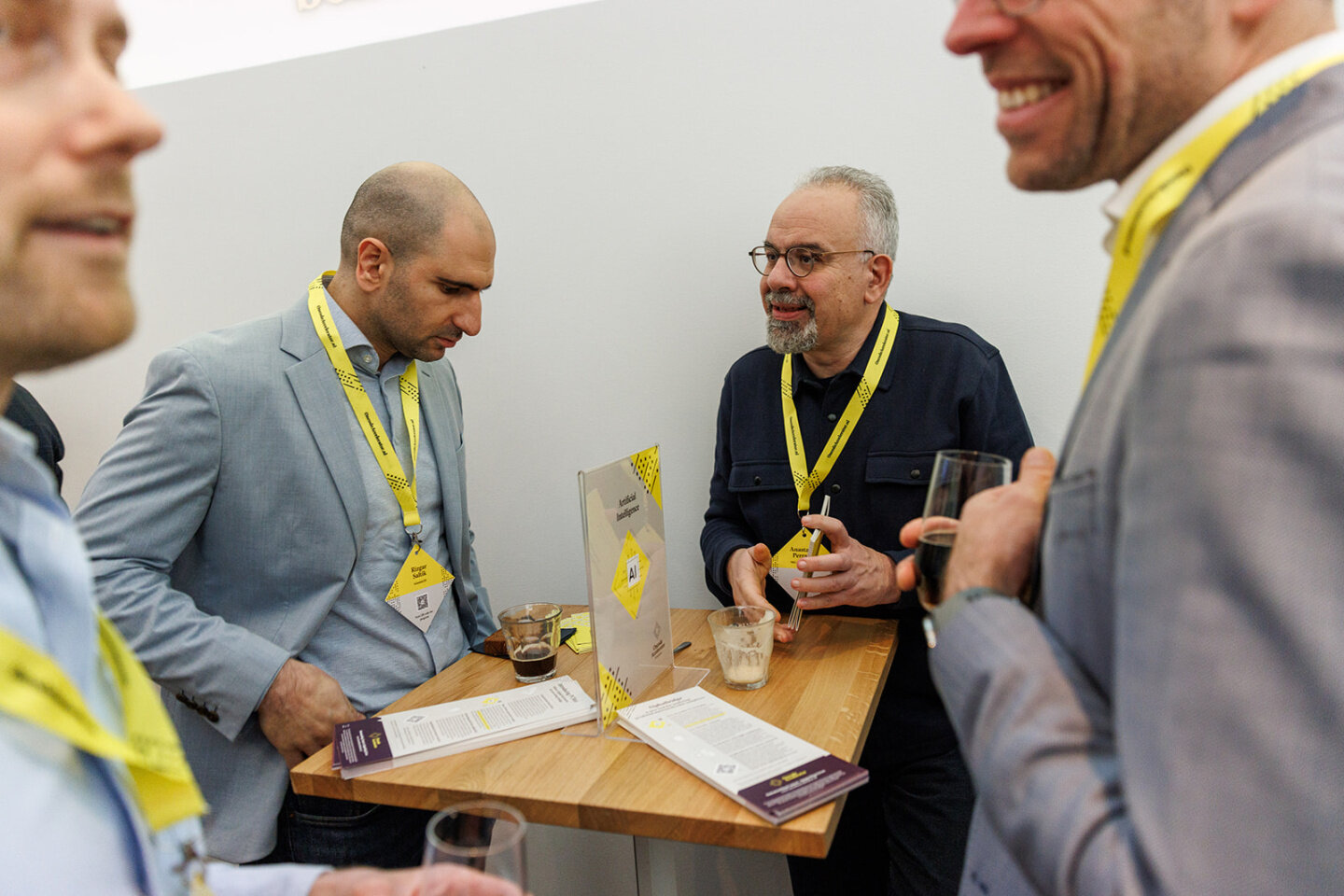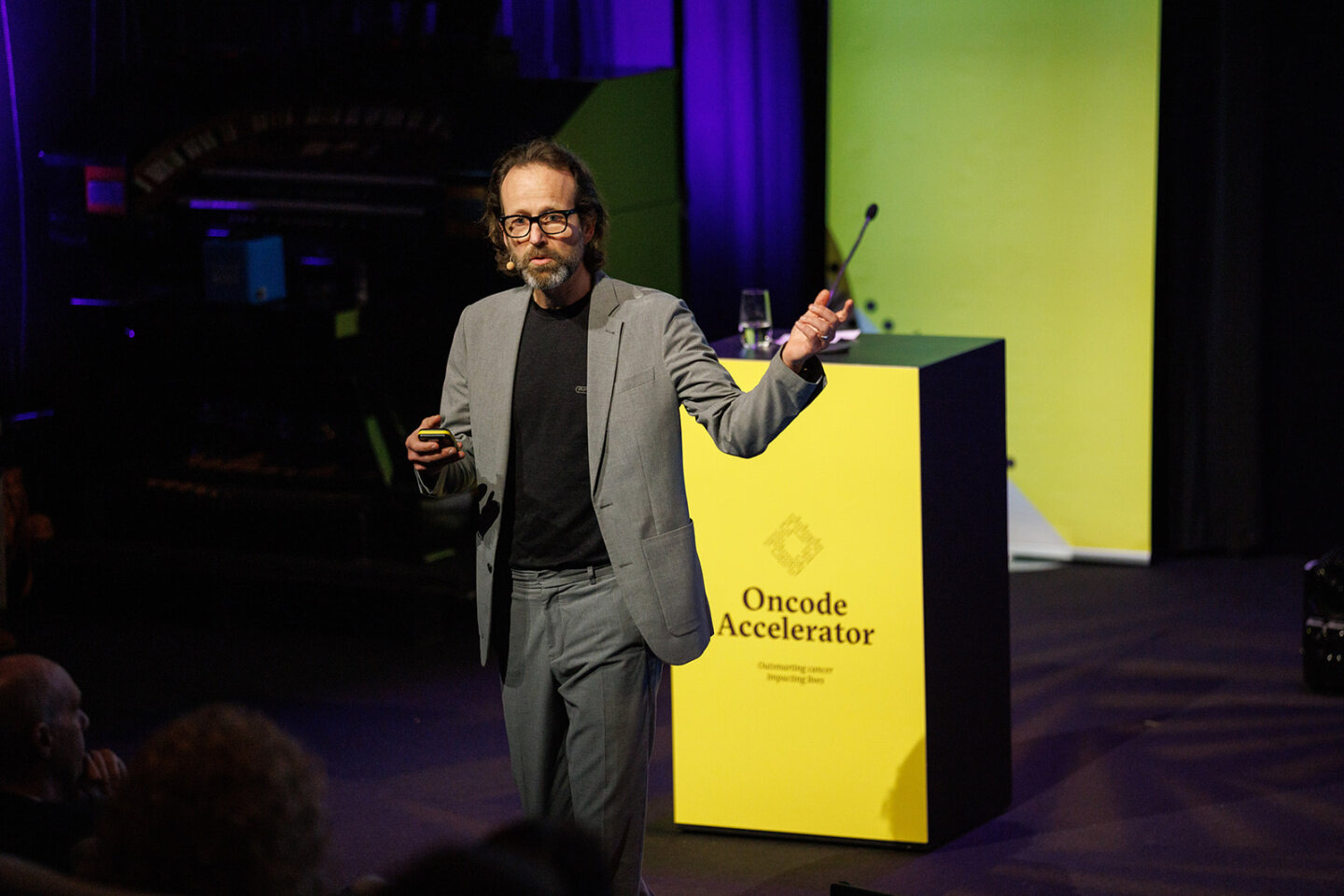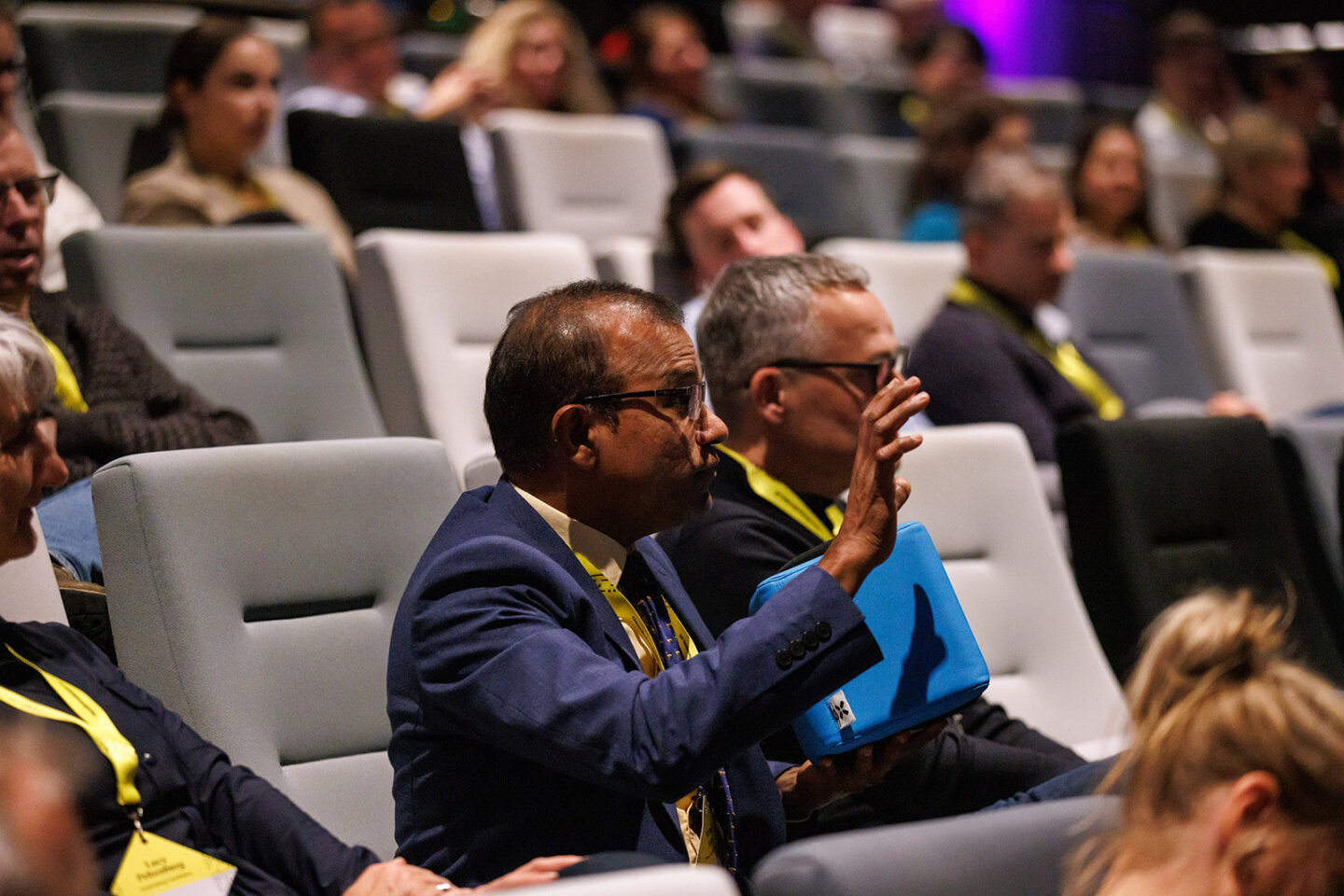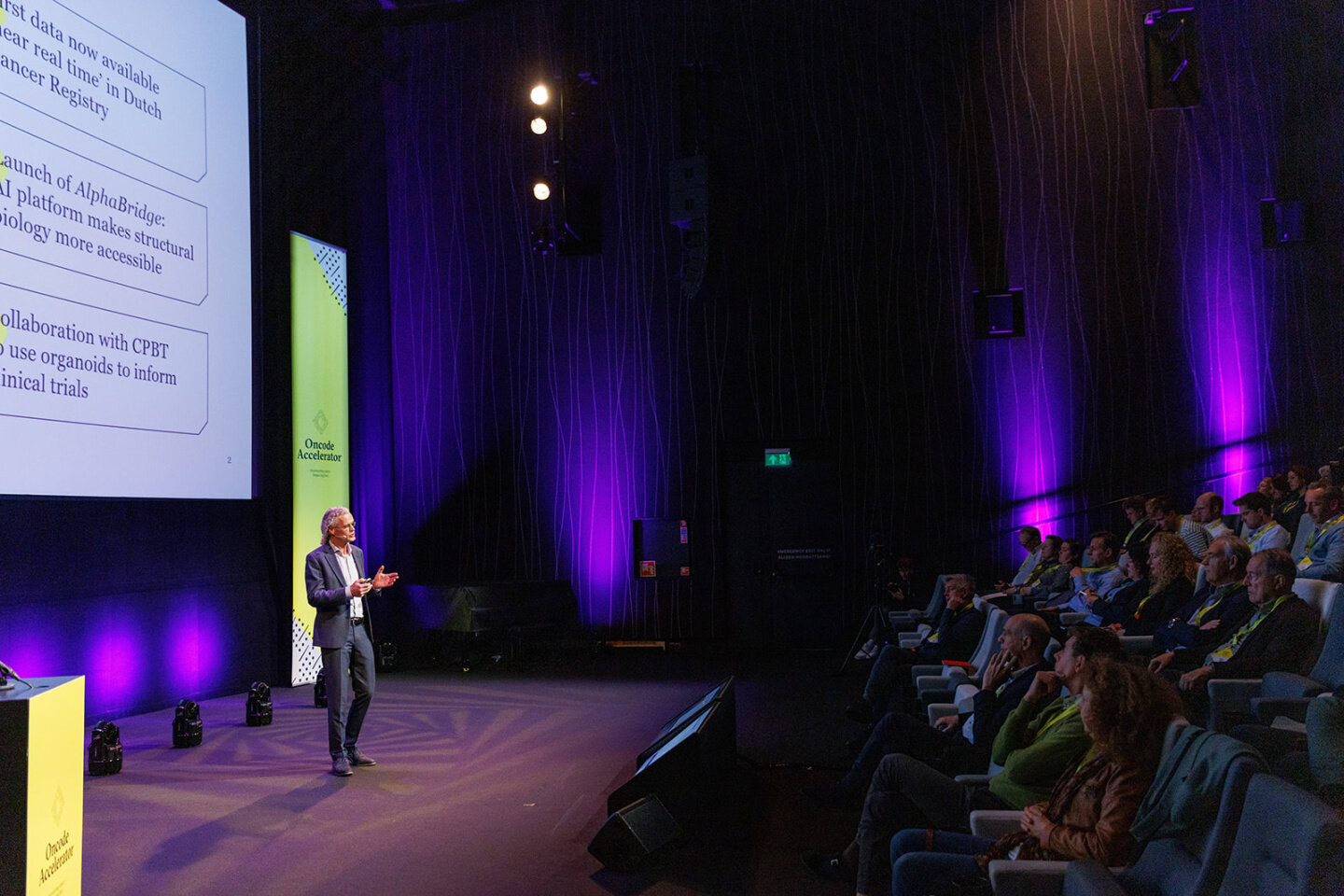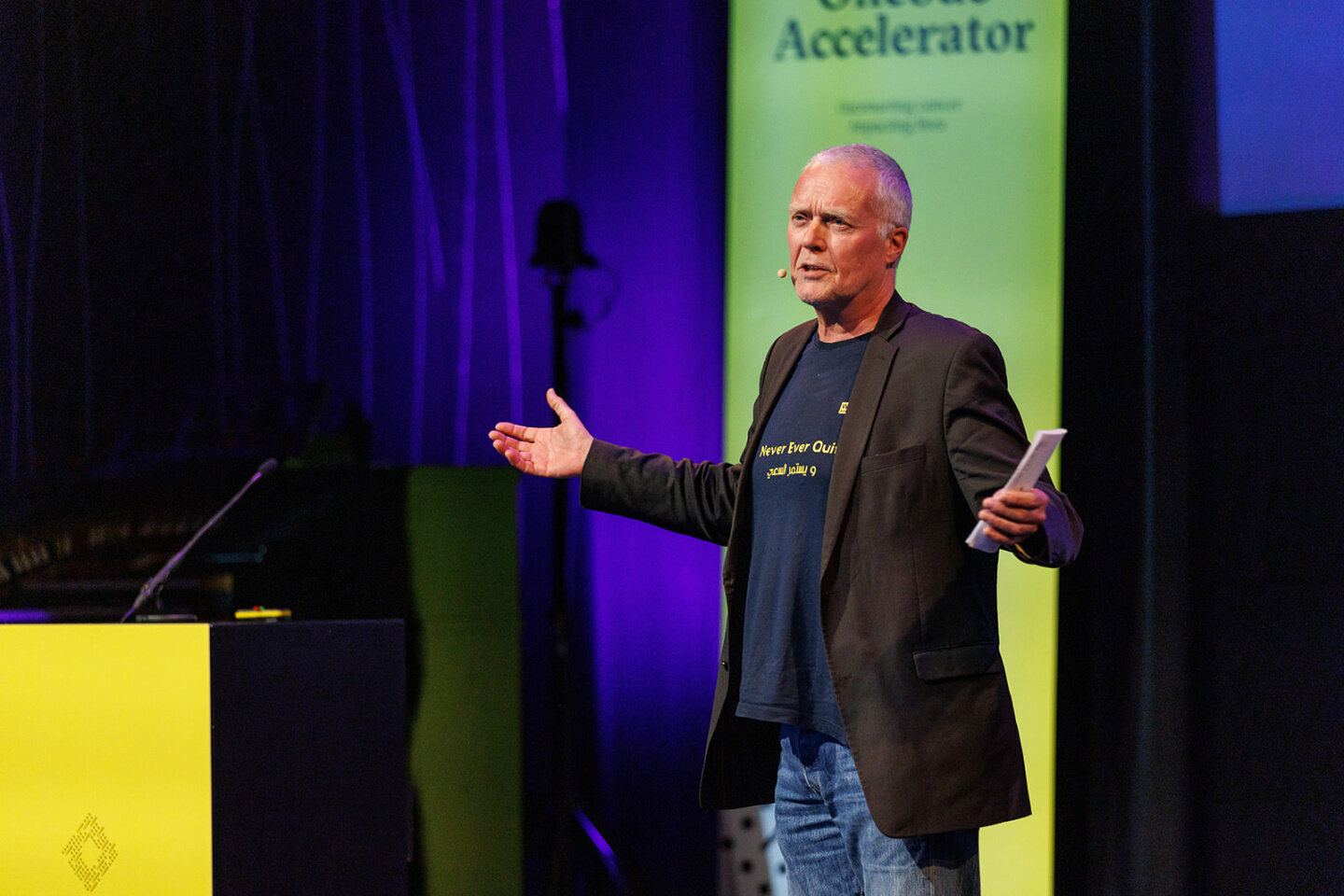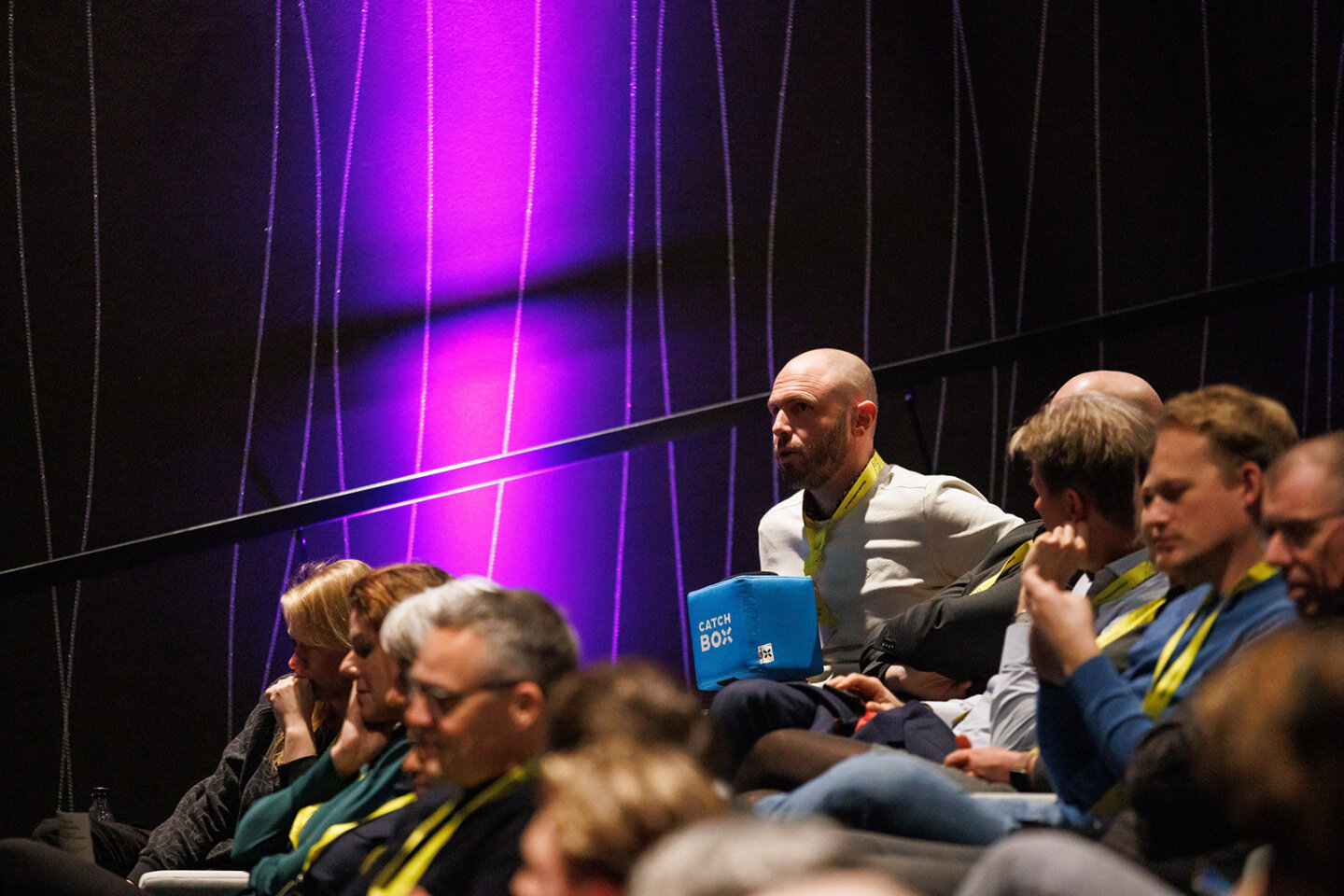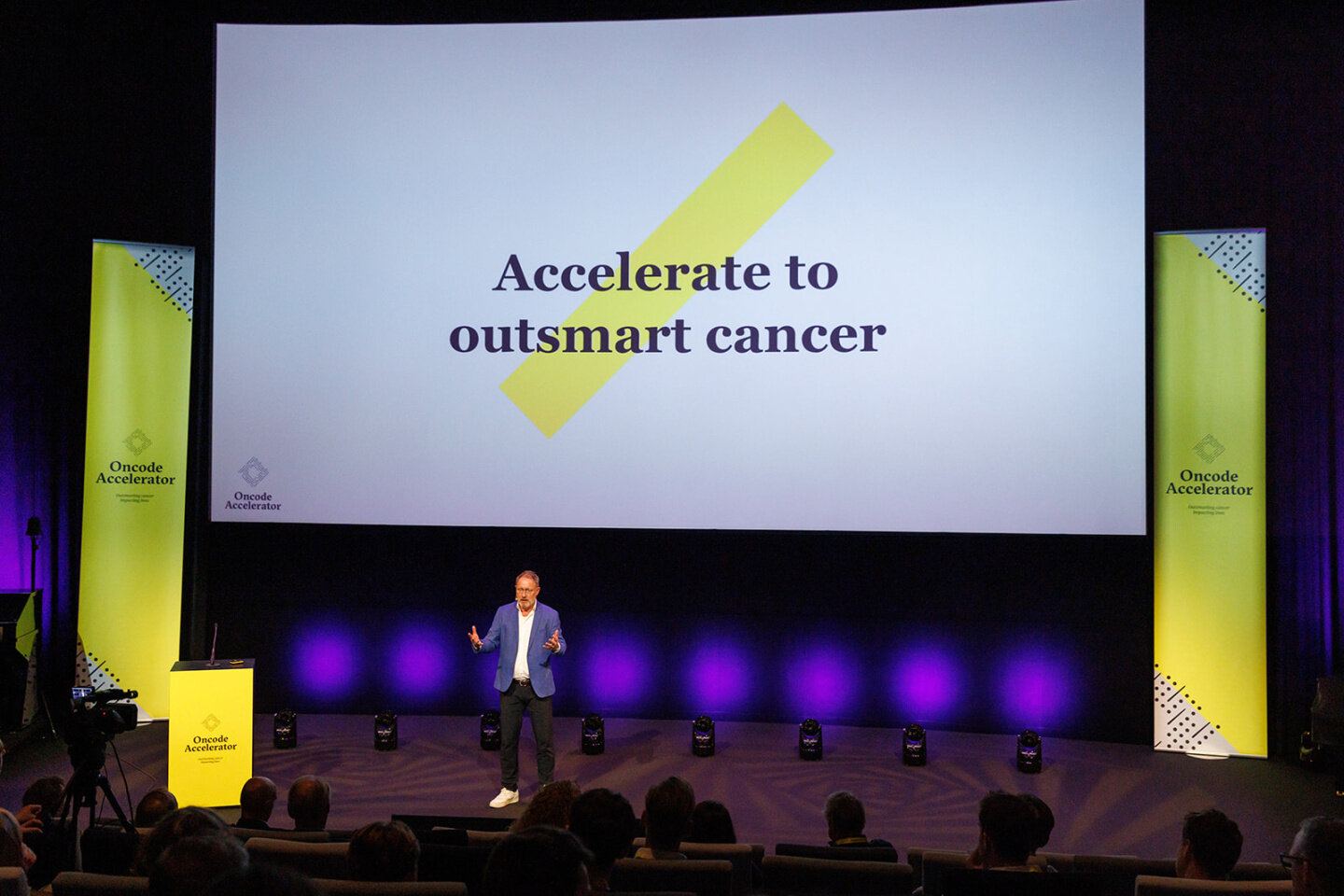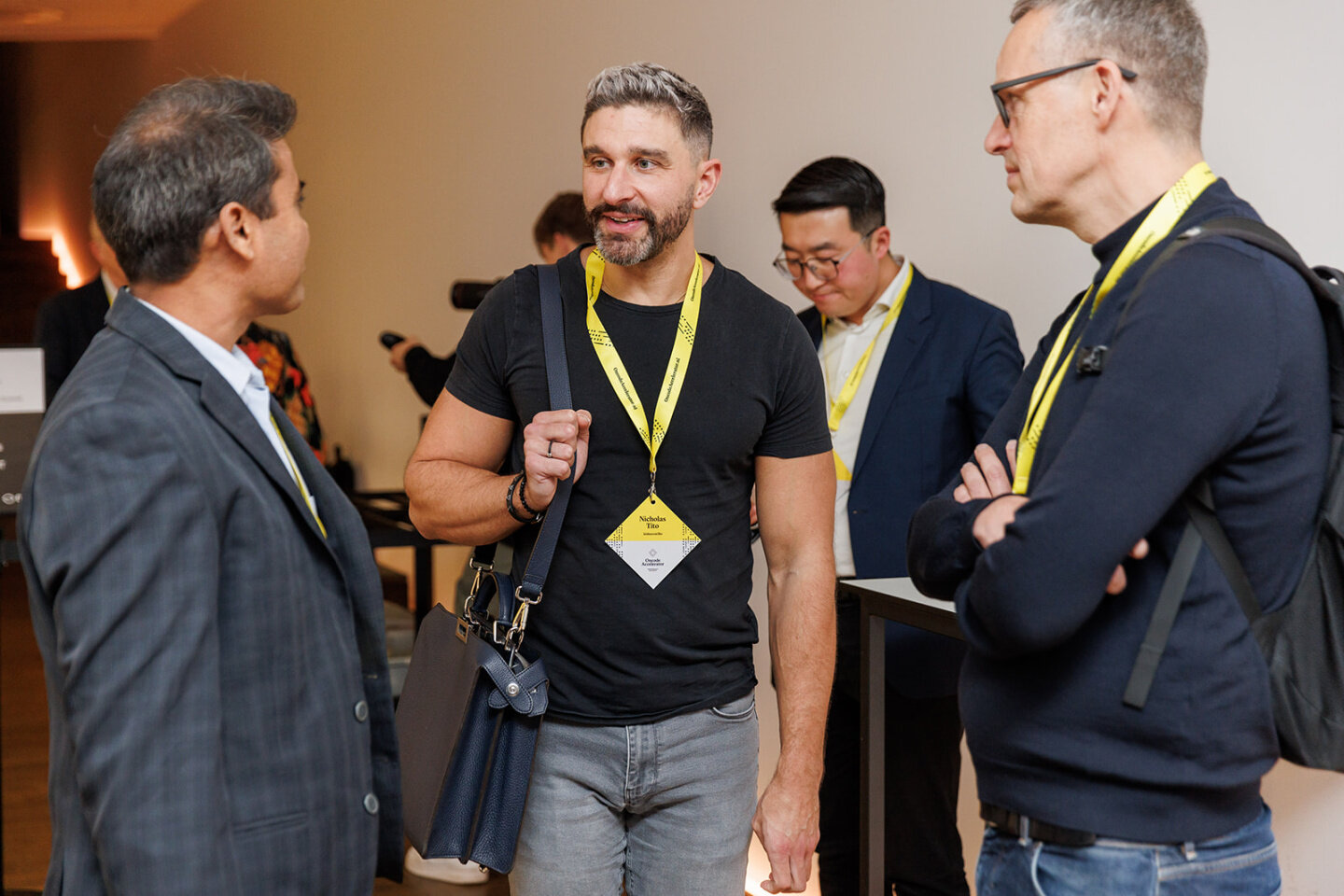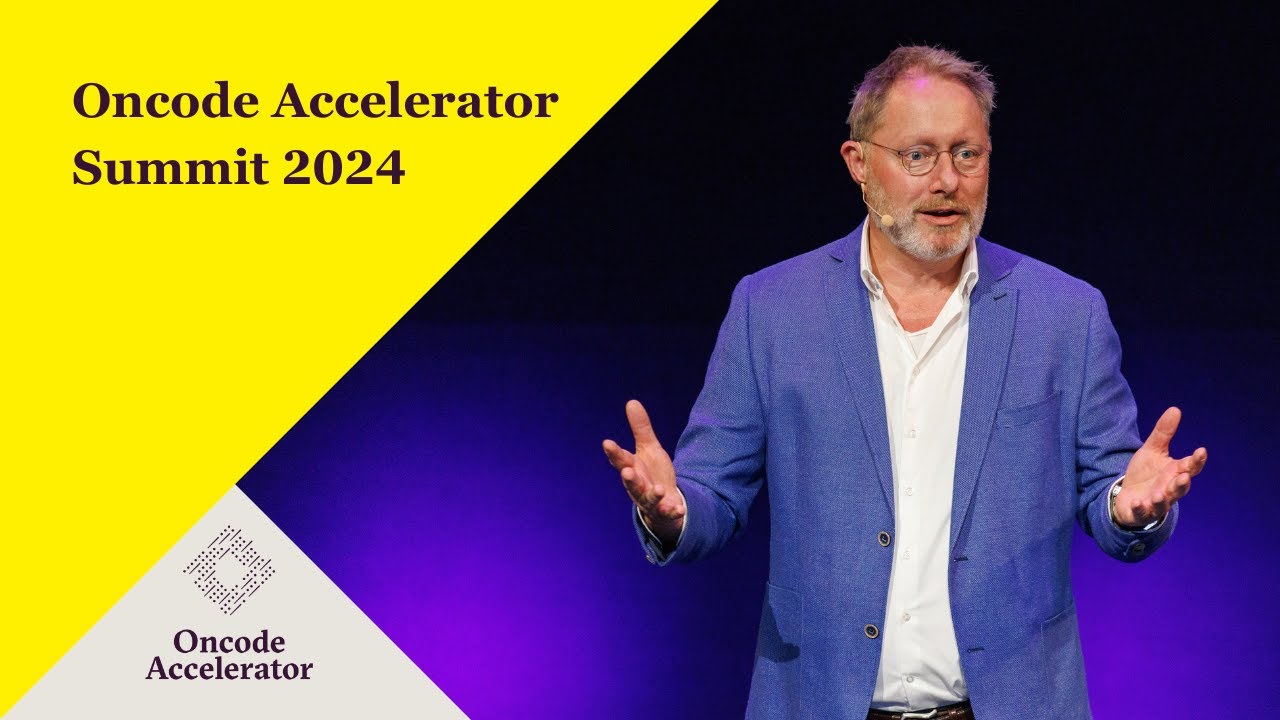Summit Highlights
06
Highlights of the First Oncode Accelerator Summit
For the first time since the official start of the Oncode Accelerator program in September 2023, cancer researchers, drug developers, investors, patient advocates, and representatives from additional stakeholders gathered in Amsterdam to discuss how to collectively accelerate the development of new cancer therapies.
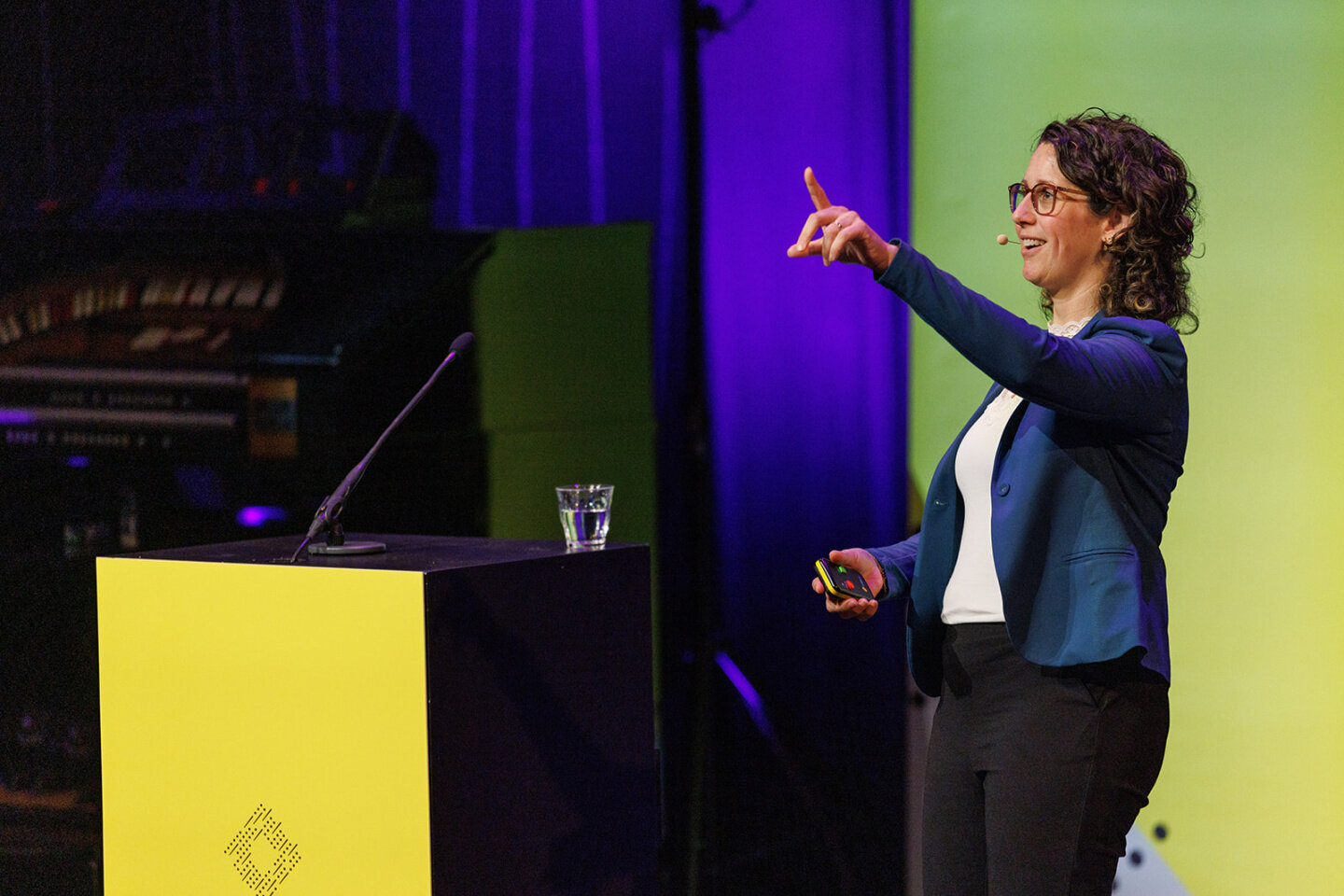
We are here to collaboratively work on accelerating oncology drug development. To outsmart cancer and impact lives. We share the same goal and are all part of the same ecosystem.
By Katell Maguet, Patient Advocate
Arnoud Huisman, CEO and member of the board of the Oncode Accelerator Foundation
Accelerating Through Innovation
Miriam Koopman, Professor of Medical Oncology at the UMC Utrecht and lead of the Oncode Accelerator Innovation Platform for well-defined Patient Cohorts, delivered the first presentation at the summit, making a strong case for why patient centricity is key in drug development. It became clear throughout the day that cancer patients themselves have a strong desire to be involved, and when asked, are almost always willing to contribute by participating in cohorts and trials and by sharing data in addition to materials like blood and tissue.
Furthermore, in preclinical stages of drug development, better models are necessary to address the heterogeneity of different patient populations to improve outcomes when new therapies enter the clinic. This need can be addressed by using patient-derived models such as organoids, as Jarno Drost elaborated on in the following presentation at the summit. Jarno, a group leader at the Princess Máxima Center for pediatric oncology and Oncode Institute and lead of the Organoids Innovation Platform at Oncode Accelerator, stated:
A very important feature of organoid technology is that you can develop these cultures from patient-derived tissues, healthy but also diseased, like cancer tissue, with a much greater efficiency compared to cancer cell lines.
By Katell Maguet, Patient Advocate
Jarno Drost, group leader at the Princess Máxima Center for pediatric oncology and Oncode Institute and lead of the Organoids Innovation Platform at Oncode Accelerator
Another key innovation that is top of mind in drug development is the use of Artificial Intelligence (AI), as presented during the summit by Andreas Bender, Professor for Molecular Informatics at Cambridge University and CITO at PangeAI (part of Pangea Bio). In order to have a clinical impact and to ensure the right patients receive the right drug, dosed in the right way, AI algorithms needs to be designed carefully and in collaboration with data science experts. Models need to be trained using the right data and with a clear purpose. With this in mind, there is promise for using AI technology especially for biomarker discovery and to leverage -omics data for compound selection and patient stratification.
Building Bridges to Accelerate
We cannot outsmart cancer and impact lives alone. During the second part of the Oncode Accelerator Summit, it became clear that it’s necessary to link investments to societal impact and showcase how research drives innovation, economic growth, and improves quality of life, to secure funding and support. As Maurice van Tilburg, Director of the National Growth Fund at the Dutch Ministry of Economic Affairs, said during his presentation on this topic:
We need collaboration; we need to connect with each other to overcome roadblocks and truly make an impact together.
By Katell Maguet, Patient Advocate
Maurice van Tilburg, Director of the National Growth Fund at the Dutch Ministry of Economic Affairs
Along those lines, René Kuijten, Partner & Head of EQT Life Sciences and member of the Supervisory Board of Oncode Institute and Oncode Accelerator, made a case to investors, both private as well as public, for supporting the development of new therapies. He mentioned that the brightest ideas and the largest breakthroughs in cancer research come from universities, and that well-funded fundamental research allows curious minds to roam freely. Not everything will emerge as a success - but the freedom to develop something and put scientists in their most creative environment is what enables innovation. However, translation from science to market is still difficult, which is why Oncode Institute, and Oncode Accelerator were founded.
In the next presentation, Debby Vermeer-Kruijsen, an independent consultant at DVK Biotech and co-lead of the Oncode Accelerator Workstream Biologics, demonstrated how fostering collaboration between research and clinic, as well as industry and academia, can accelerate the development of new cancer treatments. Through the Oncode Accelerator program, this all comes together via Demonstrator Projects, preclinical development and discovery projects for new cancer therapies. These projects are designed to demonstrate the value of close collaboration between the Innovation Platforms and Workstreams within Oncode Accelerator, and of optimization of the workflow to reduce the failure rate of novel biologics in the clinic.
The program continued with Friso Smit, COO and member of the board at the Oncode Accelerator Foundation, who highlighted the progress and achievements of the Oncode Accelerator program to date. Amongst those key achievements, the Therapeutic Vaccines Workstream recently celebrated the opening of a cancer vaccine facility at the Princess Máxima Center for pediatric oncology. Furthermore, the Cell and Gene Therapy Workstream has started the build of their new cleanroom facilities at the Netherlands Cancer Institute, which should be finalized mid-2025. Friso also elaborated on the initial interest from industry and academia in applying for Demonstrator Projects and that numerous PhD projects have now started, supported by grants from the Oncode Accelerator program. In addition, a steady stream of papers are already published in key journals, showcasing the scientific impact the program has made to date.
Medicines That Don’t Reach the Patient, Don’t Cure
Placing patients at the core of preclinical drug development is part of the Oncode Accelerator DNA. The summit started with a presentation on patient centricity and ended with a powerful keynote lecture from Peter Kapitein, a cancer survivor, advocate, and founder of Inspire2Live and Alpe d'HuZes. During his lecture at the summit, Peter emphasized the necessity to connect patients, researchers, clinicians, industry, payers, and regulators in order to progress and improve cancer research, treatments, and care. Only through collaboration can we impact the lives of patients.
This is what we are here for, to take care that we not only do good research or only produce good treatments but that we bring them to patients. And that is a responsibility that we all have.
By Katell Maguet, Patient Advocate
Peter Kapitein, Patient Advocate, Founder of Inspire2Live and Alpe d'HuZes
Validating our Innovative Approach
Within Oncode Accelerator, Demonstrator Projects are preclinical discovery and development projects for oncology therapies, aiming to validate the research infrastructure built within the program and to demonstrate that it can deliver clinically ready, de-risked candidate drugs. Our call is open for new program partners to apply for projects to co-develop their validated target or hit through Oncode Accelerator and receive up to 1.5 million euro in co-funding.
About
Geraldine Vink
Geraldine acts as a Program Lead of the Well-defined Patient Cohorts platform, and is also working as a Program Manager at University Medical Center Utrecht and the Netherlands Comprehensive Cancer Organisation (IKNL).
About
Miriam Koopman
Miriam is internist-oncologist and professor of medical oncology at University Medical Center Utrecht, and acts as Principal Investigator and Scientific Lead of the Well-defined Patient Cohorts platform within Oncode Accelerator.
